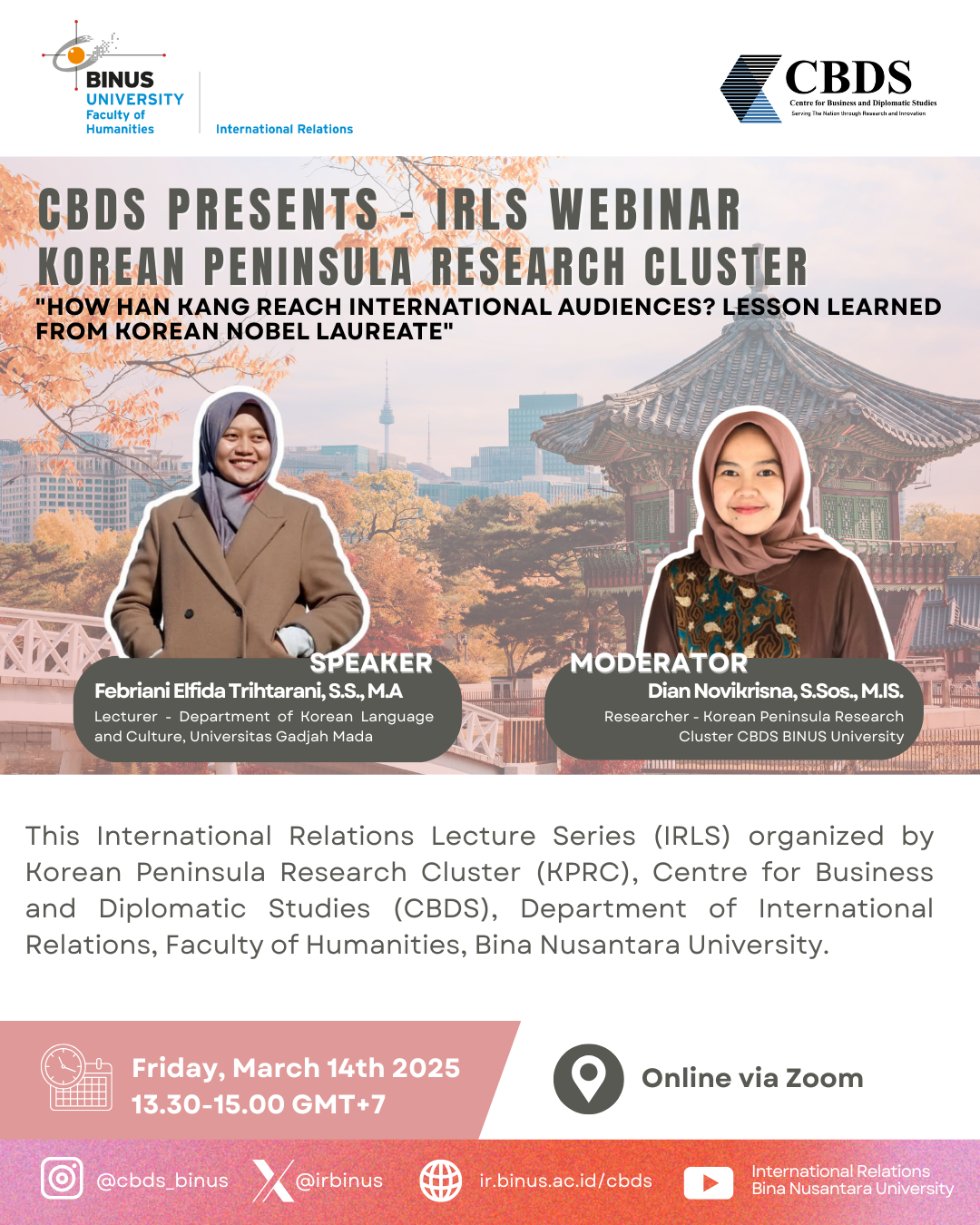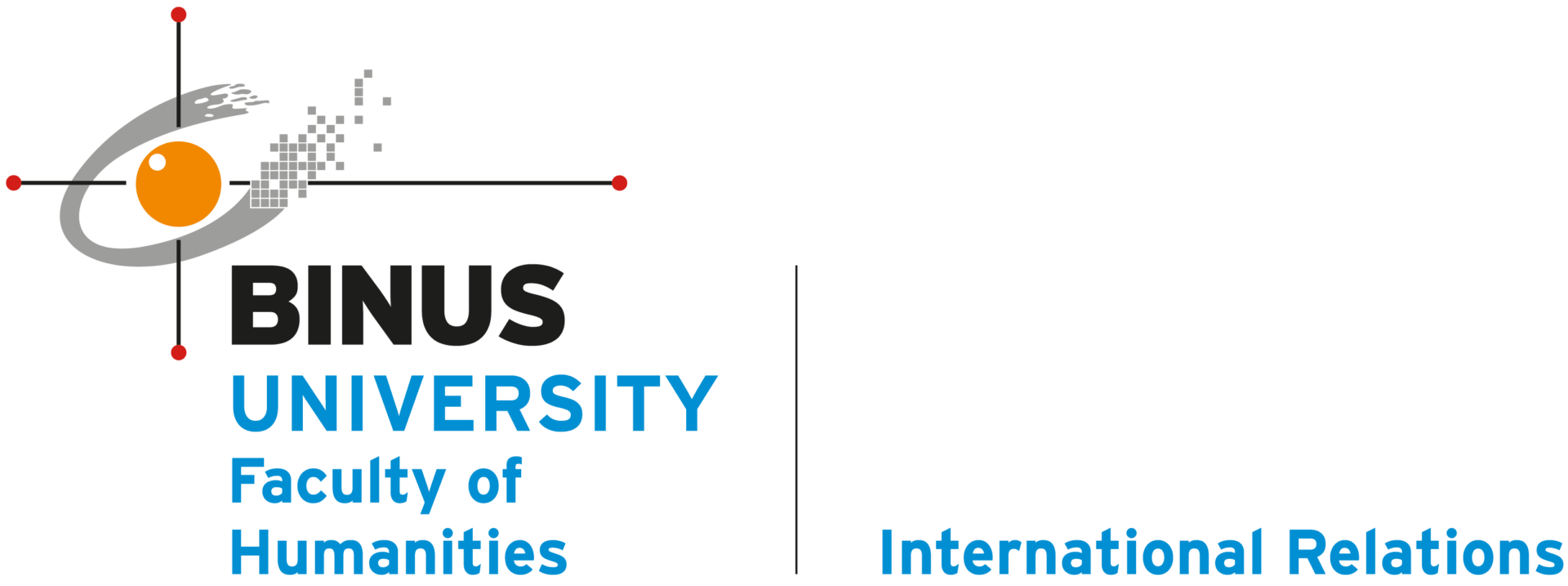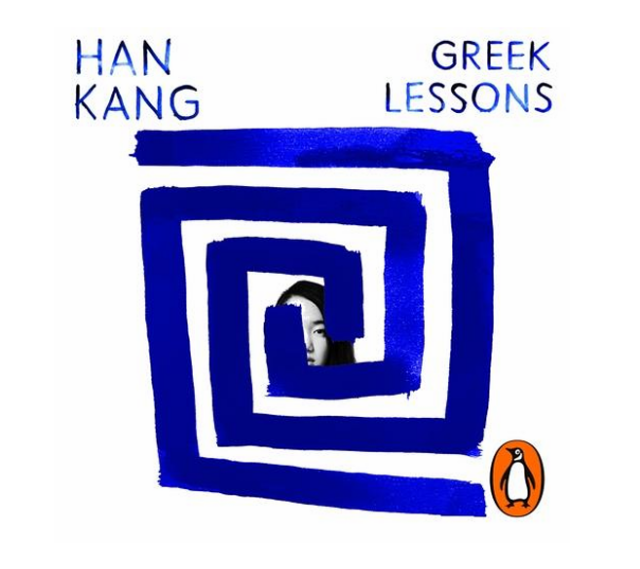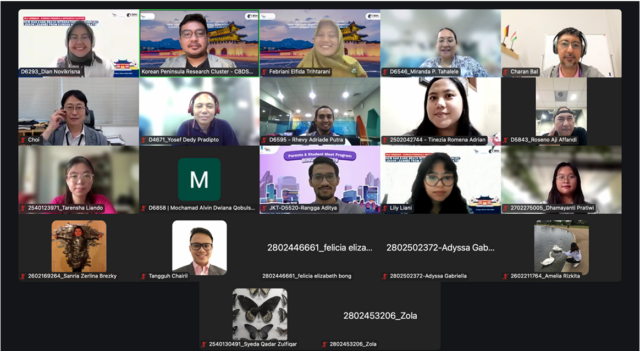Korean Peninsula Research Cluster CBDS Holds Inaugural Webinar on Han Kang’s Literary Works

The Korean Peninsula Research Cluster, part of the Centre for Business and Diplomatic Studies (CBDS) in the Department of International Relations at Bina Nusantara University, held its inaugural webinar titled “How Han Kang Reaches International Audiences? Lessons Learned from a Korean Nobel Laureate”. The event, which took place on March 14, 2025, via Zoom, was attended by students, lecturers, and representatives from the Korean Foundation.
The webinar was opened by Dian Novikrisna, S.Sos., M.IS., a researcher at the Korean Peninsula Research Cluster who also served as the moderator. In her opening remarks, Dian highlighted Han Kang’s mastery of conveying emotions through her works and noted the growing diversity of South Korean literature, which now encompasses historical, social, and psychological themes.
The main presentation was delivered by Febriani Elfida Trihtarani, S.S., M.A., a lecturer at the Department of Korean Language and Culture at Universitas Gadjah Mada, who is currently pursuing her doctoral studies at Seoul National University. She discussed Han Kang’s background, literary works, Nobel Prize win, key themes in her writings, and how to approach reading her books.
Getting to Know Han Kang and Her Works
Han Kang, a South Korean author born in Gwangju on November 27, 1970, comes from a literary family background. She made her literary debut in 1993 with the poem “Winter in Seoul” and in 1994 with the short story “The Scarlet Anchor”. In 2024, Han Kang became the first Asian woman to win the Nobel Prize in Literature.
Some of her major works include “The Vegetarian” (2007), “Human Acts” (2014), “The White Book” (2016), “Greek Lessons” (2011), and “We Do Not Part” (2021). Her writings are known for their depth and emotional impact. “Human Acts”, for instance, portrays the 1980 Gwangju Uprising through a second-person narrative, detailing its effects on the protagonist, Kang Dong Ho, and those around him. Meanwhile, “We Do Not Part” is set against the backdrop of the 1948 Jeju Uprising and delves into themes of memory, trauma, and deep-seated wounds, making it a profoundly moving read.
Han Kang’s Unique Style and Themes
Han Kang is known for addressing historical events, trauma, and the lives of forgotten victims, weaving these elements into beautifully poetic narratives. Her lyrical writing style, combined with profound and evocative language, allows her works to be read almost like poetry, further enhancing their appeal to international audiences.
Her success in winning the Nobel Prize in Literature was supported by various initiatives, including the Korea Literature Translation Institute (KLTI), which helped translate her works into multiple languages. Although some readers may find her writing style challenging at first, her works provide deep insights into South Korea’s social, cultural, and historical contexts, immersing readers in its realities.
An Interactive Discussion Session
The webinar concluded with an engaging Q&A session. One participant shared their experience of reading Han Kang’s works and asked for book recommendations. Febriani Elfida Trihtarani suggested starting with “The Vegetarian” or “Greek Lessons” before moving on to “We Do Not Part”, which is more complex. She also emphasized Han Kang’s distinctive realist approach.
This webinar provided valuable insights into Han Kang’s literary journey and how her works gained international recognition. Given the event’s success, the Korean Peninsula Research Cluster CBDS Binus University plans to hold more thought-provoking discussions.
Writer: Dhammayanti Pratiwi
Editor: Mochamad Alvin Dwiana Qobulsyah



